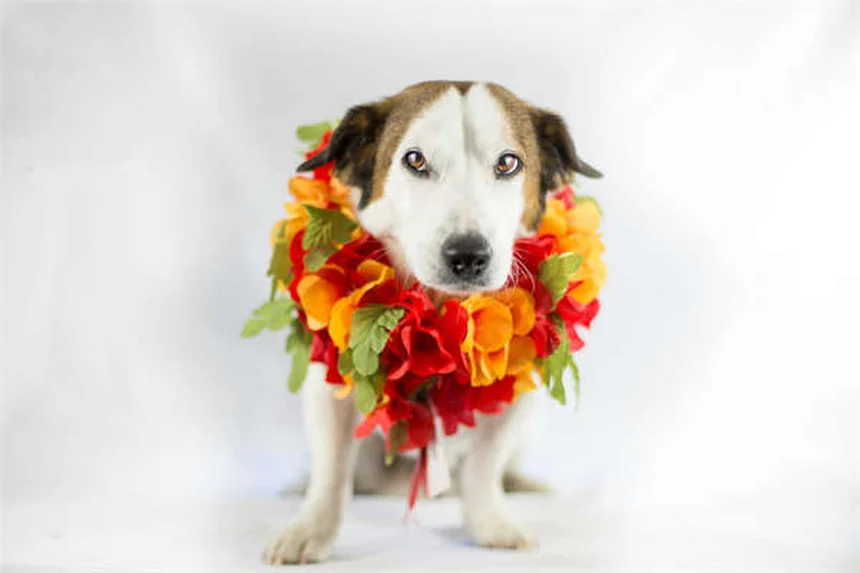Why is my dog's face swollen? The answer is: facial swelling in dogs usually happens due to allergic reactions, but can also stem from dental issues, injuries, or even cancer. As a dog owner myself, I know how scary it can be when your pup's face suddenly puffs up like a balloon. The good news? Most cases are treatable when caught early.In this guide, we'll walk through the top causes of dog facial swelling, show you exactly what symptoms to watch for, and explain when it's time to rush to the vet. Trust me, after reading this, you'll feel much more prepared if your four-legged friend ever develops this concerning symptom.
E.g. :Dog Seizures: Symptoms, Causes & What to Do Immediately
- 1、Why Does My Dog Look Like a Pufferfish?
- 2、Playing Detective: What to Look For
- 3、Vet Visit 101: What to Expect
- 4、Treatment Options: From Simple to Serious
- 5、Prevention: Keeping That Face Handsome
- 6、Final Thoughts (But Not Really)
- 7、The Hidden Dangers You Might Not Know About
- 8、Beyond the Vet: Home Care Strategies
- 9、Long-Term Management Solutions
- 10、When to Consider a Specialist
- 11、Community Support and Resources
- 12、FAQs
Hey there, fellow dog lovers! Let's talk about something that might make you go "Oh no!" - when your pup's face suddenly looks like they tried to befriend a bee hive. Facial swelling in dogs happens when fluid builds up in their tissues, and while it's often due to allergies, there's actually a whole buffet of possible causes.
Why Does My Dog Look Like a Pufferfish?
The Usual Suspects: Allergies
Picture this: your dog's face balloons up after playing in the yard. Allergies are the most common party crashers when it comes to facial swelling. Here's what might be triggering your pup:
• Dust bunnies and mold monsters hiding in your home
• That new dog food you just switched to
• Pollen from plants (nature's sneeze powder)
• Insect bites (bees think dogs make great landing pads)
• Snake bites (ouch!)
• Vaccinations (sometimes necessary evils)
• Medications (ironic, right?)
The Not-So-Fun Stuff: Other Causes
Now, let's talk about the less common but still important causes. Did you know that dental problems can make your dog's face swell up like they're storing nuts for winter? Here's the scoop:
Gingivitis and gum disease are like uninvited guests at your dog's mouth party. And just like that one relative who overstays their welcome, they can cause serious problems if not dealt with. Other troublemakers include various types of cancers (mast cell tumors being the most common), and injuries from rough play or accidents.
Playing Detective: What to Look For
 Photos provided by pixabay
Photos provided by pixabay
Location, Location, Location
Where the swelling happens can give you major clues. Think of it like a treasure map, but instead of gold, you're looking for answers:
| Swelling Location | Possible Cause | Other Symptoms |
|---|---|---|
| Muzzle | Dental problems | Bad breath, red gums |
| Neck/Jaw | Swollen salivary glands | Difficulty eating |
| Around Eyes | Conjunctivitis | Red eyes, discharge |
| Ears | Allergies | Hives, sneezing |
When to Sound the Alarm
Here's something important to remember: facial swelling can sometimes turn into an emergency faster than you can say "vet bill". If your dog's swelling is making it hard for them to breathe, or if hives stick around longer than 24 hours, it's time for professional help.
Did you know that some dogs can have allergic reactions so severe they need IV fluids? That's why it's always better to be safe than sorry when it comes to your furry friend's health.
Vet Visit 101: What to Expect
The Investigation Begins
When you take your swollen-faced pup to the vet, they'll turn into Sherlock Bones (get it?). They'll examine your dog's head and neck, ask you about recent activities ("Did Fido try to eat a bee?"), and might recommend some tests:
• X-rays (for dental issues)
• Skin scrapings (for tumor checks)
• CT or MRI scans (for serious cases)
• Trial antibiotics (if they suspect an abscess)
 Photos provided by pixabay
Photos provided by pixabay
Location, Location, Location
While you're waiting for your vet appointment, here's a pro tip: take pictures of the swelling. This helps track whether it's getting better or worse. And no, this isn't just for your dog's Instagram - it's actually useful medical information!
Treatment Options: From Simple to Serious
Fixing the Puffy Face
The treatment your vet recommends will depend on what's causing the swelling. Mild cases might just need a cold compress (imagine your dog wearing tiny cucumber slices), while serious allergic reactions could require steroids or IV fluids.
For dental issues, your dog might need anything from a cleaning to tooth removal. And if it's an abscess? Antibiotics to the rescue! The good news is that most causes of facial swelling are treatable, especially when caught early.
What NOT to Do
Here's a question you might be wondering: "Can I just give my dog some Benadryl?" The answer is... maybe, but only if your vet says so. Some human medications can be dangerous for dogs, so always check with your vet first.
Remember that time your aunt gave you questionable medical advice? Yeah, don't be that person with your dog. When in doubt, call the vet!
Prevention: Keeping That Face Handsome
 Photos provided by pixabay
Photos provided by pixabay
Location, Location, Location
If allergies are the culprit, you might need to play detective to find the trigger. Keep a diary of when swelling occurs - was it after walks in certain areas? After eating specific foods? This info is gold for your vet.
For food allergies, your vet might recommend an elimination diet. It's like that time you tried to figure out which food made you gassy, but for your dog.
Dental Care Matters
Good dental hygiene can prevent many cases of facial swelling. Brush your dog's teeth regularly (yes, really!), provide dental chews, and schedule professional cleanings. Your dog's breath (and face) will thank you!
Think of it this way: you wouldn't go years without brushing your teeth, right? Your dog shouldn't either. Plus, dental disease can lead to more serious health issues down the road.
Final Thoughts (But Not Really)
While facial swelling in dogs can be scary, most cases are treatable with prompt veterinary care. The key is to pay attention to your dog's symptoms, act quickly when needed, and work with your vet to find the cause.
And remember - a puffy-faced dog might look funny in photos, but it's always better to have them looking their normal, adorable selves. Now go give your pup some love (and maybe check their teeth while you're at it)!
The Hidden Dangers You Might Not Know About
Environmental Factors That Could Surprise You
You'd be shocked how everyday household items can trigger swelling in sensitive pups. That new air freshener you love? Could be the culprit. We often forget that dogs' noses are 10,000 to 100,000 times more sensitive than ours - what smells pleasant to us might overwhelm them.
Here's something wild - did you know some dogs react to laundry detergent residue on their bedding? I once had a client whose golden retriever kept getting puffy eyes until they switched to fragrance-free detergent. Common household triggers include: cleaning products, scented candles, essential oil diffusers (especially tea tree oil), and even some types of mulch in your garden.
The Emotional Impact on Your Pup
Ever considered how facial swelling affects your dog's mood? Imagine trying to eat dinner with your lips three times their normal size - frustrating, right? Dogs experiencing chronic swelling often show behavioral changes like increased irritability or withdrawal.
I've seen cases where normally social dogs become reluctant to interact because they associate the discomfort with other pets or people. Watch for subtle signs like decreased tail wagging, avoiding eye contact, or reluctance to play with favorite toys. These emotional impacts are just as important to address as the physical symptoms.
Beyond the Vet: Home Care Strategies
Creating a Comfort Zone
When your dog's face is swollen, simple adjustments at home can make a world of difference. Elevate their food and water bowls to reduce neck strain - think of it like eating soup when you have a cold. Soft foods become your best friend during recovery periods.
Here's a pro tip most people don't think about: adjust your home's humidity levels. Dry air can exacerbate swelling discomfort. I recommend keeping a humidifier running near your dog's favorite resting spot, especially in winter months when heating systems dry out the air.
The Power of Distraction
Did you know puzzle toys can actually help with recovery? When dogs focus on solving food puzzles or working on chew toys, it naturally reduces their stress levels. Lower stress means reduced inflammation - it's a win-win!
I always tell clients to rotate through different types of mental stimulation. One day it's a frozen Kong, the next it's a snuffle mat. This variety keeps your dog engaged while their body heals. Bonus: The mental workout tires them out just as much as physical exercise.
Long-Term Management Solutions
Building an Allergy Toolkit
For dogs with recurring swelling episodes, preparation is key. I recommend creating an emergency kit that includes: vet-approved antihistamines, cold packs specifically designed for pets, and a list of emergency contacts laminated for quick reference.
Here's a question you might not have considered: "Should I get pet insurance for allergy-prone dogs?" Absolutely! The table below shows why it's worth considering:
| Expense Type | Without Insurance | With Insurance |
|---|---|---|
| Emergency Visit | $300-$800 | $50-$150 copay |
| Allergy Testing | $200-$500 | 80% covered |
| Monthly Meds | $50-$150 | 50-70% covered |
The Future of Allergy Treatment
Veterinary medicine is making exciting advances in allergy management. Immunotherapy (allergy shots tailored to your dog's specific triggers) has success rates over 75% for environmental allergies. The process starts with a simple blood test to identify exact allergens.
What's really cool is that some clinics now offer sublingual (under-the-tongue) immunotherapy drops instead of injections. No more wrestling your dog for weekly shots - just a quick squirt in their mouth and they're good to go!
When to Consider a Specialist
Signs You Need a Veterinary Dermatologist
If your dog experiences more than three swelling episodes in six months, it's time to level up your care team. Veterinary dermatologists have specialized training to identify tricky cases that general practitioners might miss.
I'll never forget the case of a bulldog who kept getting facial swelling despite multiple treatments. Turns out he had an unusual mold allergy only detectable through specialized testing. The dermatologist found it in one visit after months of frustration. Sometimes that extra expertise makes all the difference.
The Cost vs. Benefit Analysis
Specialist visits might seem expensive upfront, but they often save money long-term by providing targeted solutions. Think about it this way - would you rather pay for one definitive test or keep spending on temporary fixes that don't address the root cause?
Most veterinary schools offer discounted services through their teaching hospitals. It's worth checking if there's one within driving distance. The students work under close supervision from experienced specialists, so your dog gets top-notch care at a fraction of the usual cost.
Community Support and Resources
Finding Your Tribe
Dealing with a dog's chronic health issues can feel isolating, but you're not alone! Online communities like the "Allergy Dog Parents" Facebook group connect thousands of owners facing similar challenges. The shared experiences and tips are invaluable.
Here's something heartwarming - many local pet stores now host "allergy-friendly" playgroups where dogs with similar conditions can socialize in controlled environments. It's a great way for both pups and owners to feel understood.
Educational Opportunities
Many veterinary clinics offer free workshops on allergy management and emergency preparedness. I recently attended one where they taught owners how to recognize early swelling signs we often miss. The hands-on practice with demonstration dogs was incredibly helpful.
What's the most surprising thing I learned? That gently feeling your dog's face daily helps you detect subtle changes before swelling becomes severe. It's become part of my nightly routine - a little bonding time that doubles as health monitoring.
E.g. :Causes Of Facial Swelling in Dogs | Phoenix Vets
FAQs
Q: How quickly should I take my dog to the vet for facial swelling?
A: Here's the deal - you should call your vet immediately when you notice facial swelling. While mild cases might wait until normal office hours, certain situations require emergency care. If your dog shows difficulty breathing, excessive drooling, or the swelling spreads rapidly, head to the animal hospital right away. I've seen cases where waiting just a few hours made treatment much more complicated. Remember, it's always better to be safe than sorry when it comes to your pup's health!
Q: Can I give my dog Benadryl for facial swelling?
A: While some vets may recommend Benadryl (diphenhydramine) for mild allergic reactions, you should never medicate your dog without veterinary guidance. The dosage depends on your dog's weight and medical history. What many pet owners don't realize is that certain formulations contain ingredients toxic to dogs. Always consult your vet first - they might recommend a different treatment plan based on the swelling's cause.
Q: What home remedies can I use for my dog's swollen face?
A: Let me be honest with you - home remedies aren't a substitute for veterinary care. However, while waiting to see the vet, you can apply a cold compress (never ice directly) to reduce swelling and discomfort. Keep your dog calm and prevent them from scratching the area. I've found that taking clear photos of the swelling every hour helps track progression for your vet. But please, don't try any human medications or "natural" remedies without professional advice - you could accidentally make things worse.
Q: How can I prevent my dog's face from swelling in the future?
A: Prevention depends on the cause, but here are three proven strategies that work for most dogs: First, maintain excellent dental hygiene with regular brushing and vet cleanings. Second, if allergies are the culprit, work with your vet to identify triggers through elimination diets or allergy testing. Third, keep your yard free of stinging insects and always supervise outdoor play. From my experience, dogs who've had one allergic reaction are more likely to have another, so being proactive is key!
Q: Is facial swelling in dogs ever life-threatening?
A: Yes, and this is why I can't stress enough the importance of prompt veterinary attention. Severe allergic reactions can cause anaphylactic shock, while swelling near the throat can block airways. Certain cancers causing facial swelling also require immediate treatment. I've treated cases where early intervention literally saved dogs' lives. If your gut tells you something's seriously wrong, trust that instinct and seek emergency care without delay.



Discuss